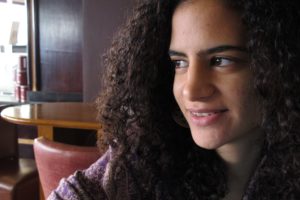A Wish Not to Betray: Some Thoughts on Writing and Translating Revolution

Wiam El-Tamami
For a long time I was afraid and unwilling to write about the revolution, struggling with the impossibility of translating the immensity, intensity, and sometimes absurdity of the upheaval — within us and without — into words that make sense, that can convey something of the experience without reducing its unfathomability. What does it mean to write without betraying? Is it possible to bring such irreconcilable elements into a cohesive whole that nevertheless belies its own incoherence? That limns, somehow, the mechanisms of life, of being human, even in a time of senselessness? The struggle to explore a writing that contains these questions rather than submitting them to the tyranny of conclusions slowly began to assert itself as an act of resistance in the face of more dangerously simplistic narratives. These delivered headlines and soundbites devoid of experience and meaning, and filled to the brim with easily digestible answers, which not only gave a funnelled perspective to those watching from afar, but began to divide the city and its people into camps existing, almost, in different spheres: those attempting to engage with the revolution on an experiential level and those who tried to hide from it behind the shield of their television screens. This personal essay offers a chronicle of this struggle, exploring the role of personal narrative in attempting to translate an experience as all-encompassing as revolution.
Wiam El-Tamami is a writer, translator, teacher and literary editor. Born to Egyptian parents, she has lived in Vietnam, Kuwait, England, Egypt and Turkey, and spent much of her adult life running away from and returning to Cairo. In May 2010 she landed back in Cairo after a stint of living in Southeast Asia, intending to leave again soon, but something compelled her to stay. She ended up being part of and being transformed by the years of upheaval to follow. Her writing about the revolution has been driven by a need to understand the small and daily meanings of upheaval, to find an essence beyond the political headlines and fed narratives. Her work has appeared in Granta, Jadaliyya, Banipal, Alif, and in various anthologies. In 2011 she won the Harvill Secker Young Translators’ Prize. She is currently based in Istanbul, where she writes and translates, practices and teaches yoga, cooks, wanders, ponders, and dreams, some nights, of Cairo.